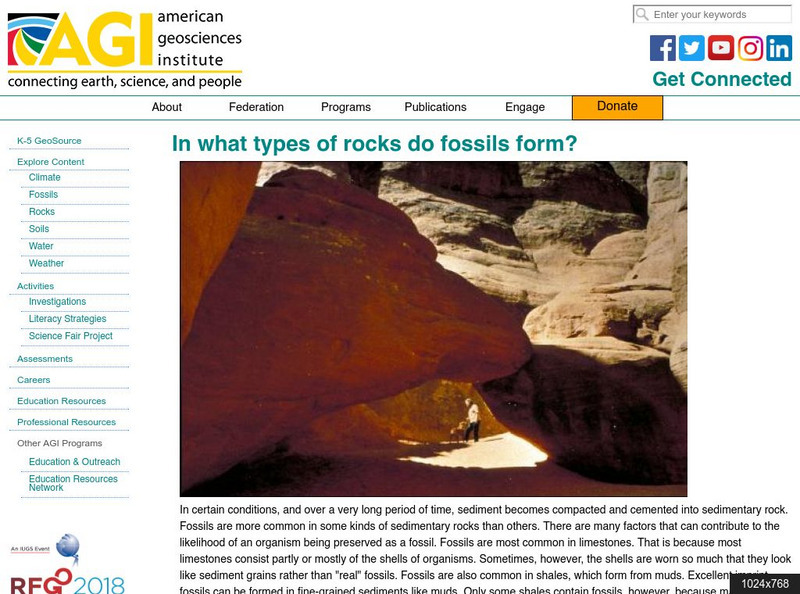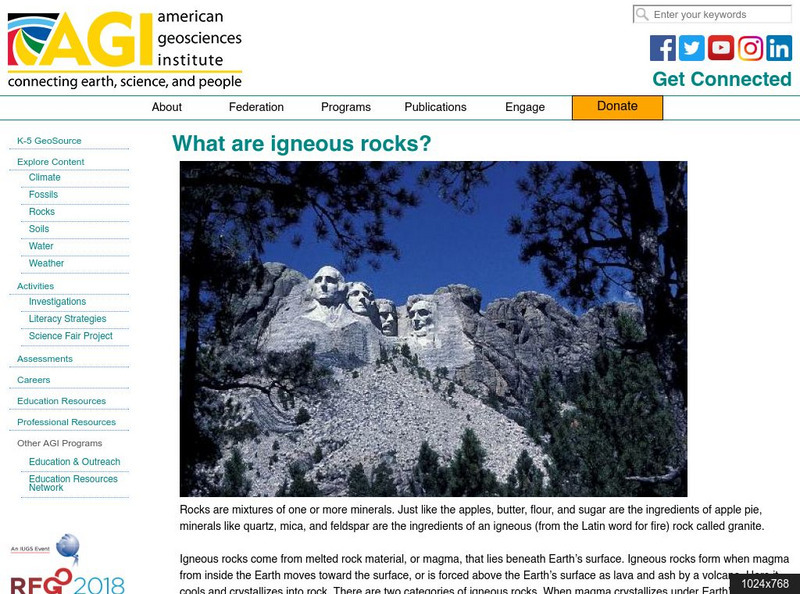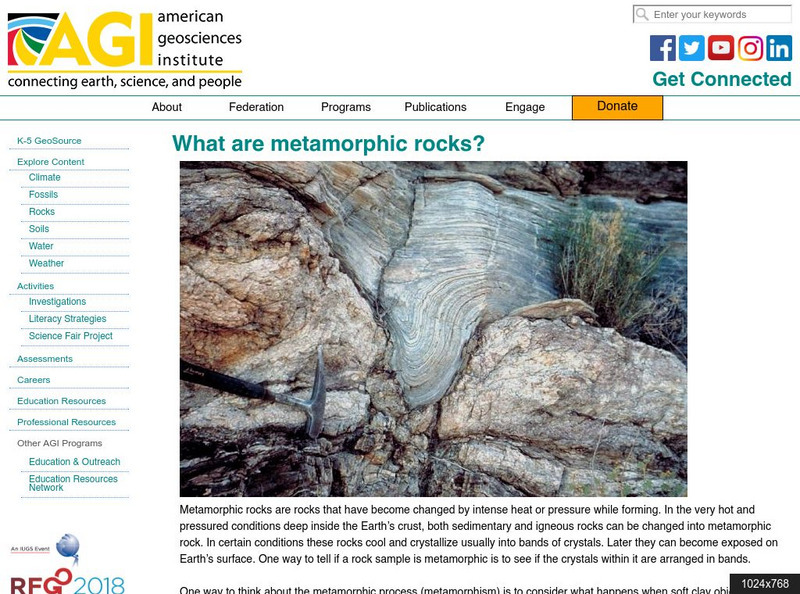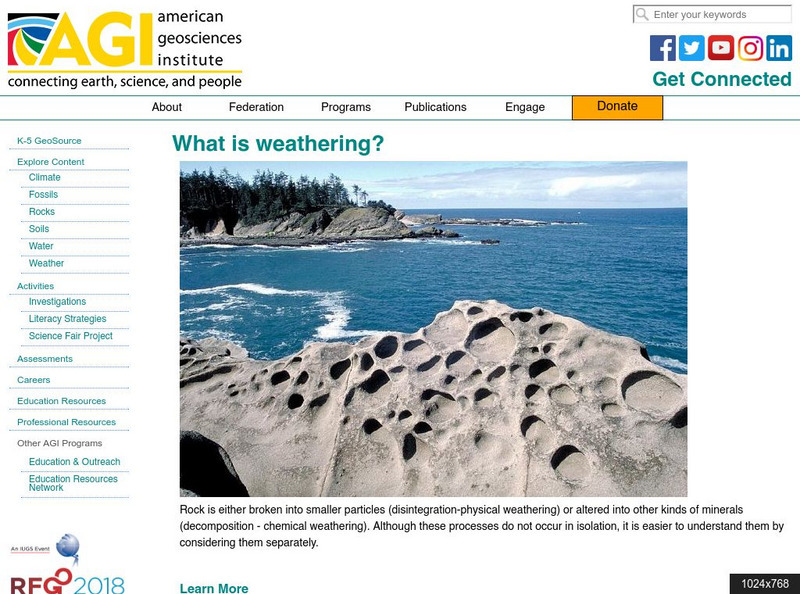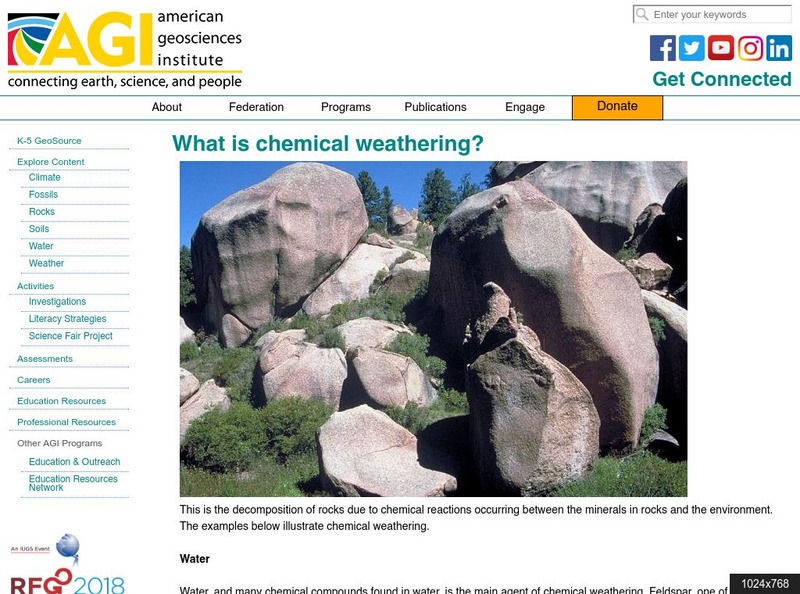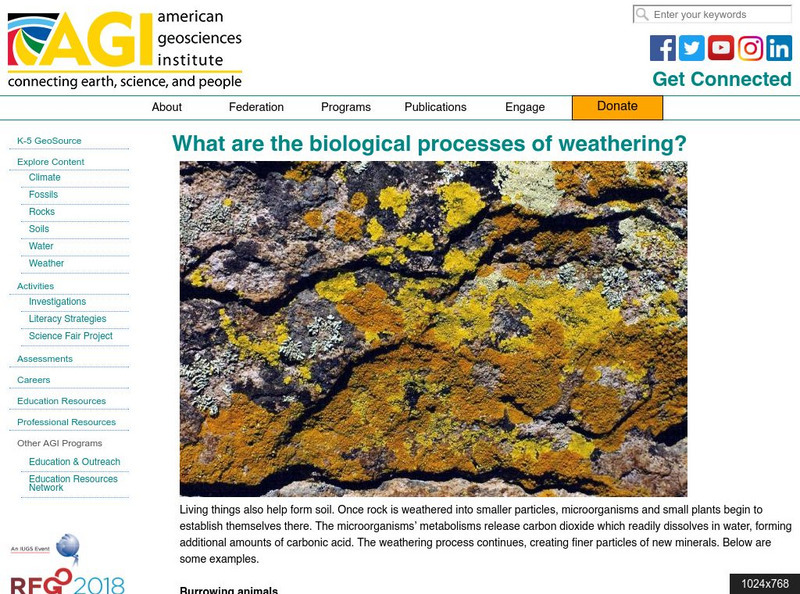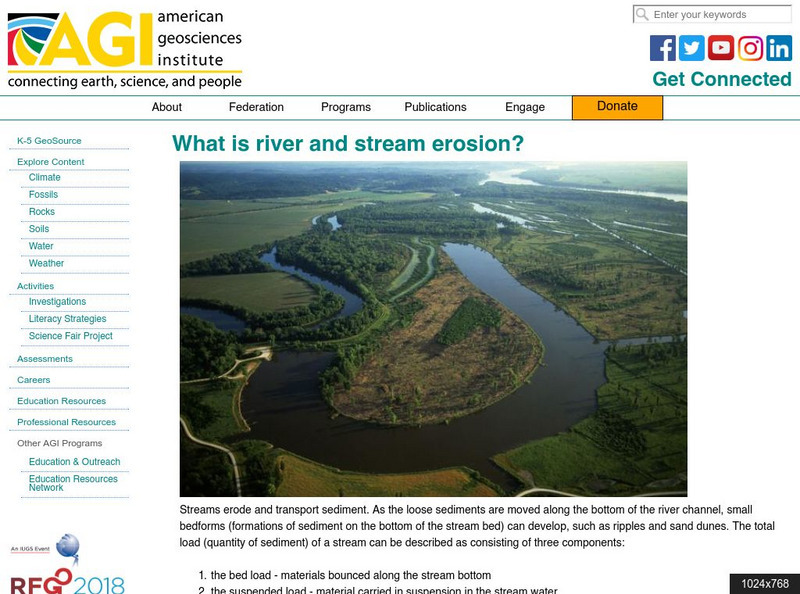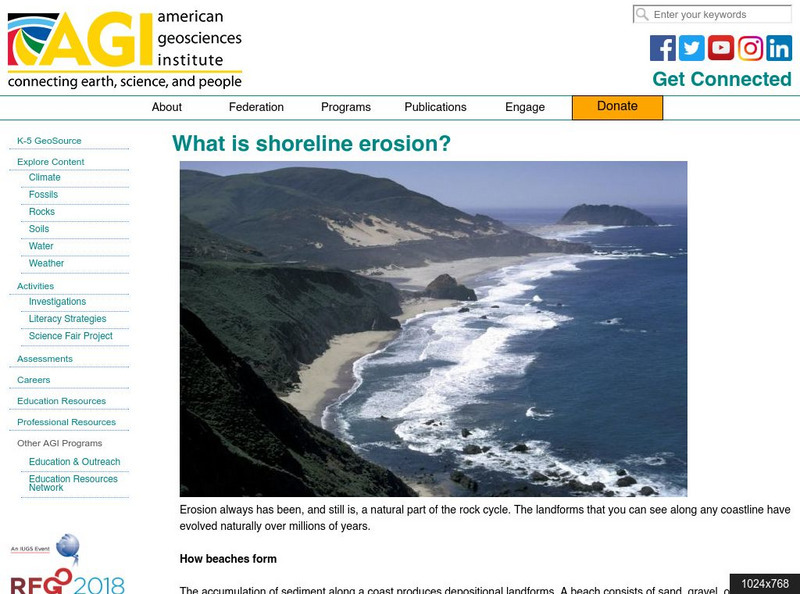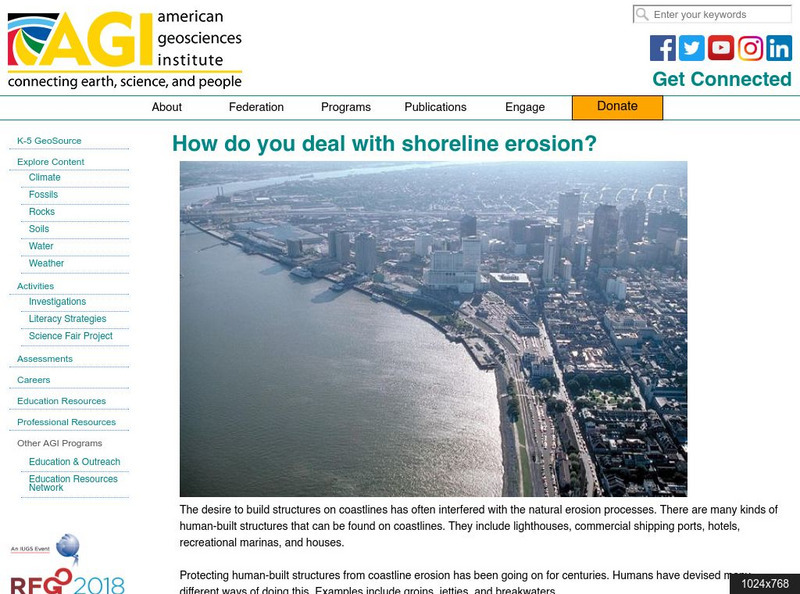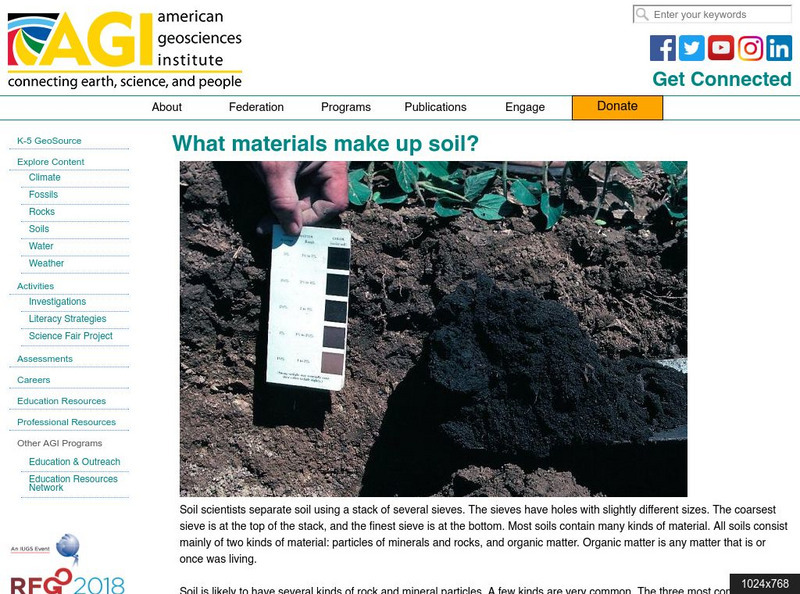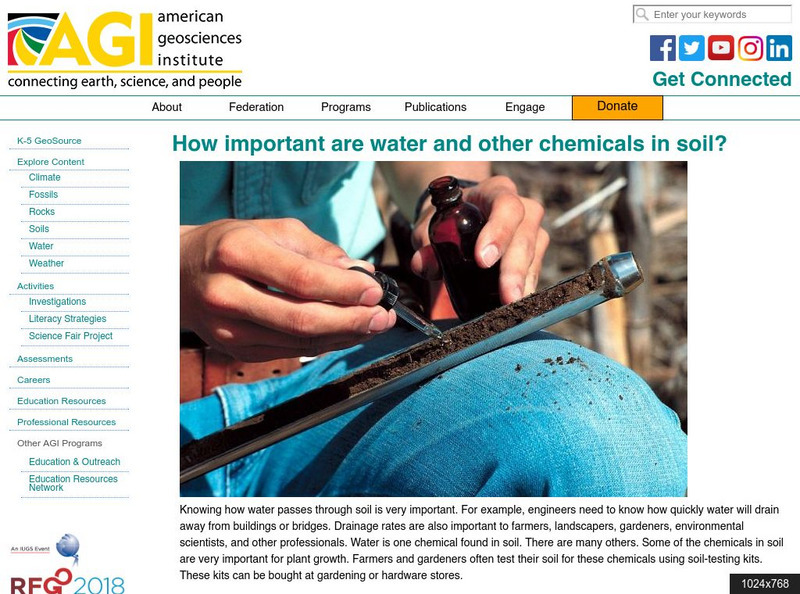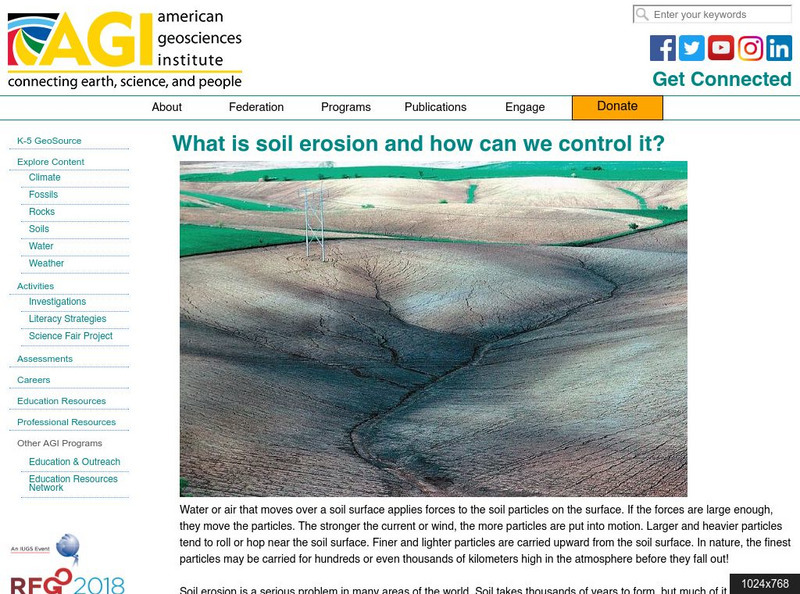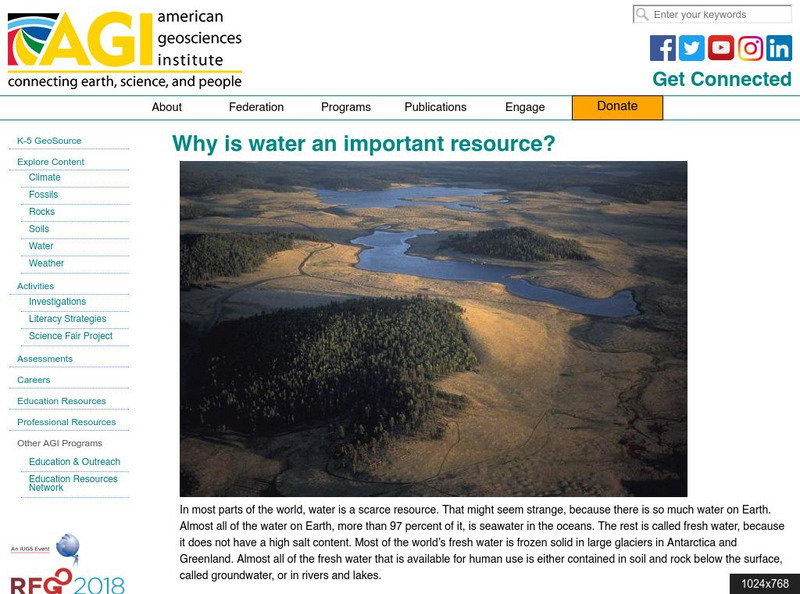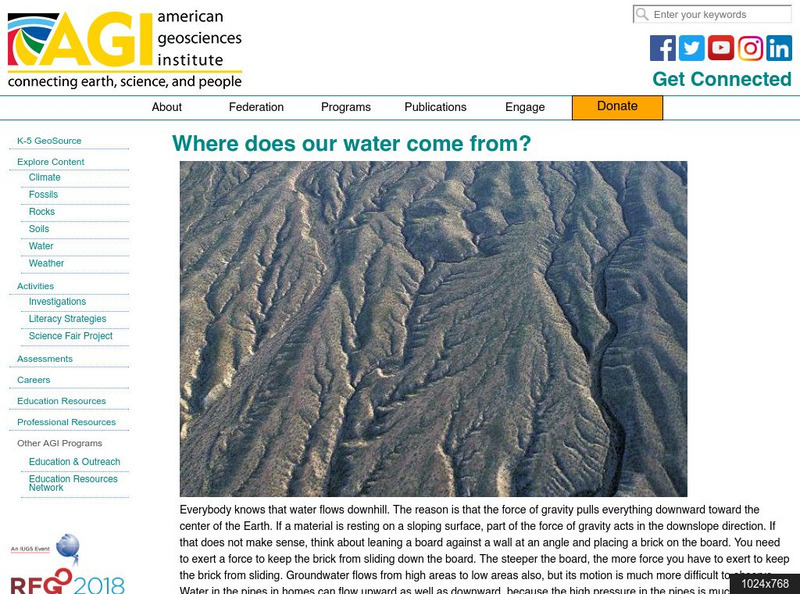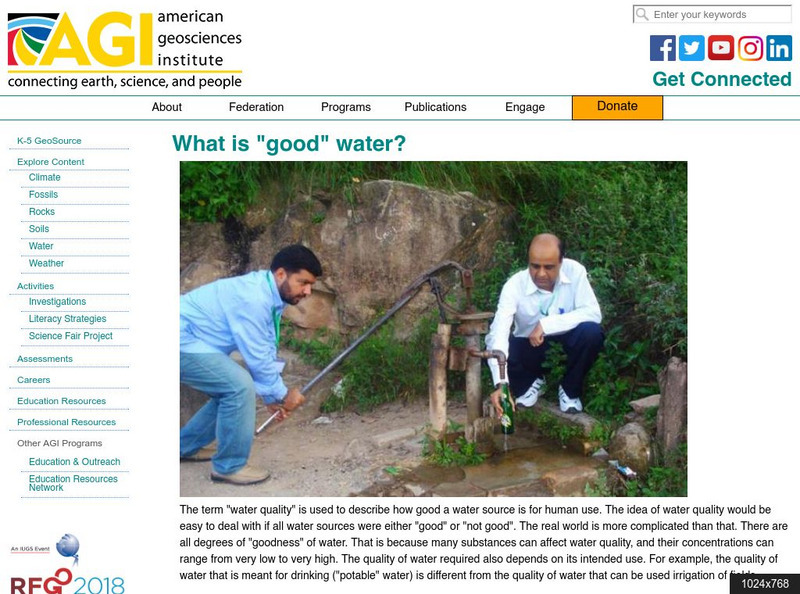American Geosciences Institute
American Geosciences Institute: In What Types of Rocks Do Fossils Form?
Learn about the types of rocks where fossils can form.
American Geosciences Institute
American Geosciences Institute: Under What Conditions Do Fossils Form?
Learn about the conditions required for fossils to form naturally.
American Geosciences Institute
American Geosciences Institute: How Do Species Change Over Geologic Time?
Find out about the ways that species change and evolve over time and generations.
American Geosciences Institute
American Geosciences Institute: What Can We Tell From the Fossil Record?
Find out what the fossil record tells scientists about the geologic and biological history of the Earth.
American Geosciences Institute
American Geosciences Institute: How Can We Tell How Old Rocks Are?
Find out how scientists can find out the age of the rocks they are studying.
American Geosciences Institute
American Geosciences Institute: How Do Paleontologists Identify Fossils?
Learn about the methods that paleontologists use to identify fossils.
American Geosciences Institute
American Geosciences Institute: Living Things Adapt to Their Environments
Find out how living organism adapt to their environments.
American Geosciences Institute
American Geosciences Institute: What Are Sedimentary Rocks?
Find out how sedimentary rocks are formed and how they are characterized.
American Geosciences Institute
American Geosciences Institute: What Are Igneous Rocks?
Learn about the make-up and causes of igneous rock.
American Geosciences Institute
American Geosciences Institute: What Are Metamorphic Rocks?
See how metamorphic rocks are rocks that have become changed by intense heat or pressure while forming.
American Geosciences Institute
American Geosciences Institute: What Is Weathering?
A definition of the process of weathering.
American Geosciences Institute
American Geosciences Institute: What Is Chemical Weathering?
Learn about the chemical weathering processes that break down rocks.
American Geosciences Institute
American Geosciences Institute: What Are the Biological Processes of Weathering?
Learn about biological factors in the weathering and breakdown of rocks.
American Geosciences Institute
American Geosciences Institute: What Is River and Stream Erosion?
Learn about several different aspects of river and stream erosion.
American Geosciences Institute
American Geosciences Institute: What Is Shoreline Erosion?
Find out how beach and shoreline erosion affect coastlines.
American Geosciences Institute
American Geosciences Institute: How Do You Deal With Shoreline Erosion?
Learn about the strategies cities use to control beach and shoreline erosion.
American Geosciences Institute
American Geosciences Institute: How Do Different Types of Soil Form?
Find out about the two major factors that affect soil formation.
American Geosciences Institute
American Geosciences Institute: What Materials Make Up Soil?
Find out about some of the most prevalent materials that make up soil.
American Geosciences Institute
American Geosciences Institute: Water and Other Chemicals in Soil
Learn why scientists use testing kits to study the soil, and find out what chemicals they test.
American Geosciences Institute
American Geosciences Institute: What Is Soil Erosion and How Can We Control It?
Learn about the factors that affect soil erosion.
American Geosciences Institute
American Geosciences Institute: Why Is Water an Important Resource?
Learn about water's importance to our planet, Earth.
American Geosciences Institute
American Geosciences Institute: How Is Water Distributed?
See how the topography and gravity affect the distribution and flow of Earth's water.
American Geosciences Institute
American Geosciences Institute: Where Does Our Water Come From?
See how rainwater and snow melt flows from high areas to low areas which ultimately results in Earth's groundwater.
American Geosciences Institute
American Geosciences Institute: What Is Good Water?
Learn about the term water quality, and how it is used to describe water sources for human use.


